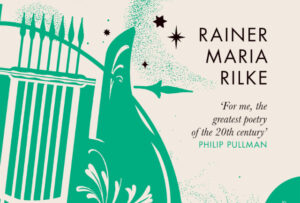Poet and literature activist Jonathan Davidson considers the concepts of ‘progress’ and ‘success’ in poetry, and discusses how we carry poetry into the future
Not so long ago I had a conversation with the friend of a friend about how they might ‘progress’ in poetry. We started with trying to figure out what ‘to progress’ might mean. I spouted the usual line that if you choose your own ‘measures’ it is up to you whether to declare you have ‘progressed’ or not. I increasingly find myself suggesting this to poets, particularly those in some distress about their (self-)perceived failures.
Some poets are surprised to discover that it is not mandatory to judge success (or failure) against magazine acceptances, pamphlet publications, competitions-wins, slim-volumes-on-short-lists, etc. I reply by saying that, although I do not subscribe to the widely held view that most rewards are given to the wrong people, over the long history of poetry now and then good poets have missed out. By this reasoning we can conclude that the system for picking poetry winners is fallible. How else, I go on to speculate, are we to exclaim my lowly status in the poetry pantheon? Joke! No, really, I was joking! Jeez.
To be a little more serious, it is a curiosity that an art-form that encourages individuality and free-thinking should often contrive to ensure that the many so uncritically applaud the few. This may account for why its practitioners frequently feel rather wretched, as they yet again fail to make whatever grade has been set by those with influence. ‘My Friend, the Prize-Winning Poet’, Meg Cox’s charming poem from her book A Square of Sunlight, hits the nail square on its bonce. It closes with the line: “… and I won’t be fucking reading it either.” That’s the spirit: grin and start to not bear it.
It is a curiosity that an art-form that encourages individuality and free-thinking should often contrive to ensure that the many so uncritically applaud the few
To be even more serious, we may well be approaching an epidemic – or even pandemic – of disappointment, as wave after wave of rather good poets come up against a shortage of opportunities to have their genius declared, or at best to be ‘highly commended for the fifth year running’. I make light of this only because I recognise its seriousness. I know the tortures people inflict upon themselves in following the established processes to get their work appreciated publicly. Because I love poets almost as much as I love poetry, it makes me unhappy to see those joyful with the playfulness of creativity directed to join the long, arduous march to poetic ‘success’. It ain’t nice and it ain’t natural.
There are no short-term solutions, but it has been suggested that poets should think not of success or failure but of the quality of appreciation they might garner? Speaking as an amateur poet myself, many of my friends take great pleasure in simply sharing poems with a small number of people. Rather than pleasing the market, we want to have people who share our taste appreciate our work, by which I mean not ‘like’ it, but engage with it thoughtfully. To read poems – our own and others’ – slowly and privately, over many decades with a small group of acquaintances, has historically been a perfectly normal way of being a poet. We serve the art-form, rather than ourselves.
Rather than pleasing the market, we want to have people who share our taste appreciate our work, by which I mean not ‘like’ it, but engage with it thoughtfully
And to add to this, it might be useful to give a little nod of gratitude to those who quietly help sustain poetry in manifold ways. I think of the buying, borrowing and lending of poetry; of the reading and re-reading, alone or in company, silently or aloud; of the writing-out of other people’s poems in notebooks or on scraps of paper; of the passing on of those scraps of paper; of the reviewing and the compiling of personal anthologies; of the time spent talking about poetry in pubs and parlours, on long walks or over breakfast. Through these pleasurable activities we carry the art-form quietly and collectively into the future. We are poetry.
Which brings me to the poet I started with; the one I was chatting to about ‘progress’ in poetry. Well, after I had spoken without pause for 72 minutes, said poet brought the ‘conversation’ to a close. Some hours later, rather than a ‘cease and desist’ notice, they kindly dropped me an e-mail to share a wonderful poem called ‘It happens like this’ by James Tate. I’d not heard of the poet – I am fairly new to poetry – so it was a double delight to read a great poem and discover a new name. In return, by way of thanks, I shared Les Murray’s ‘An Absolutely Ordinary Rainbow’. Do you know it? And by this exchange, this barter of enthusiasm, we carried the art-form a little further into the future. You could say progress was made.

